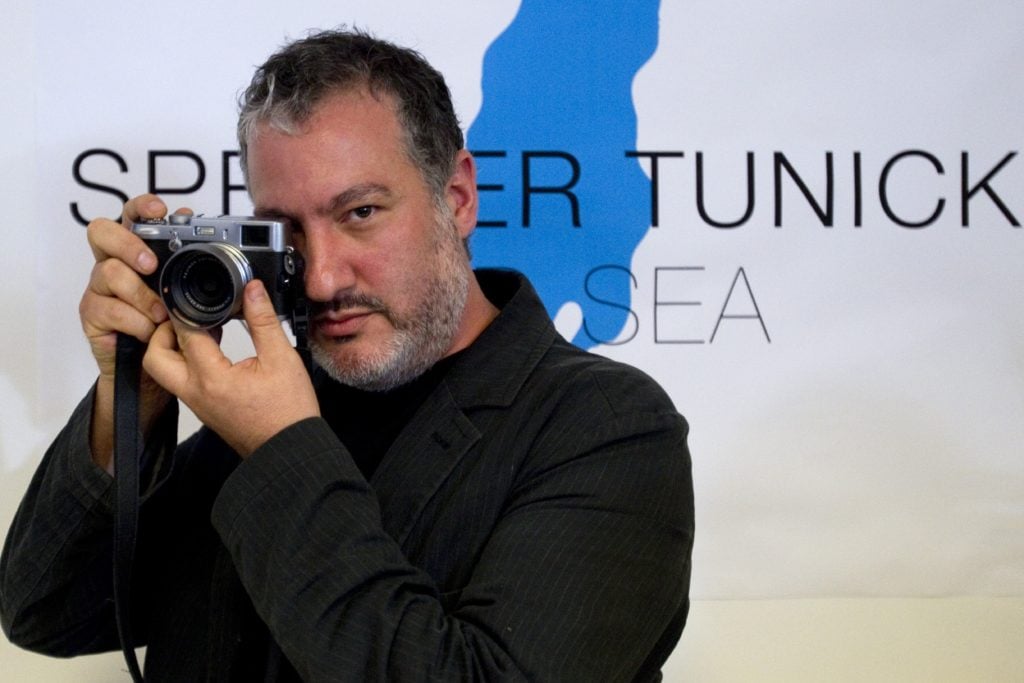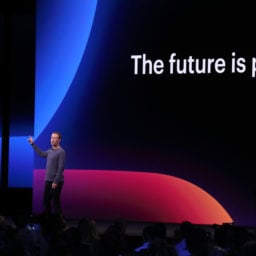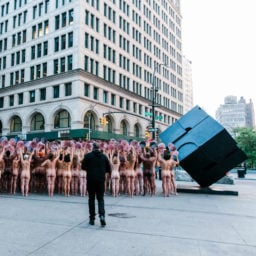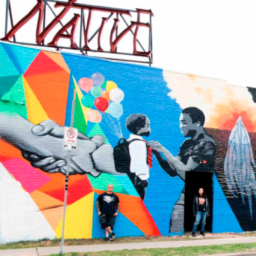Spencer Tunick is known for orchestrating massive photo shoots where all of the participants have one thing in common: they’re naked. Volunteers from all over the world have taken part in his projects, and as you might expect of someone who has made a career out of organizing mass-nude spectacles, he’s no stranger to controversy.
This summer, the artist is coming to New York City for a new project in collaboration with the National Coalition Against Censorship called #WeTheNipple. The effort is a direct challenge to Facebook and Instagram’s community guidelines, which prohibit nudity, regardless of artistic merit. These rules have landed institutions as august as Vienna’s Naturhistorisches Museum in Facebook jail simply for posting a photograph of the Venus of Willendorf.
The artist, who has more than 120 mass photoshoots in more than 30 countries under his belt, has unsurprisingly run afoul of these rules himself. After posting photos of a Portugal-based participatory event, his Facebook account was disabled for violation of its terms, even though he had applied discretionary pixelation. The websites don’t target all nipples, either—topless men pass muster every day.
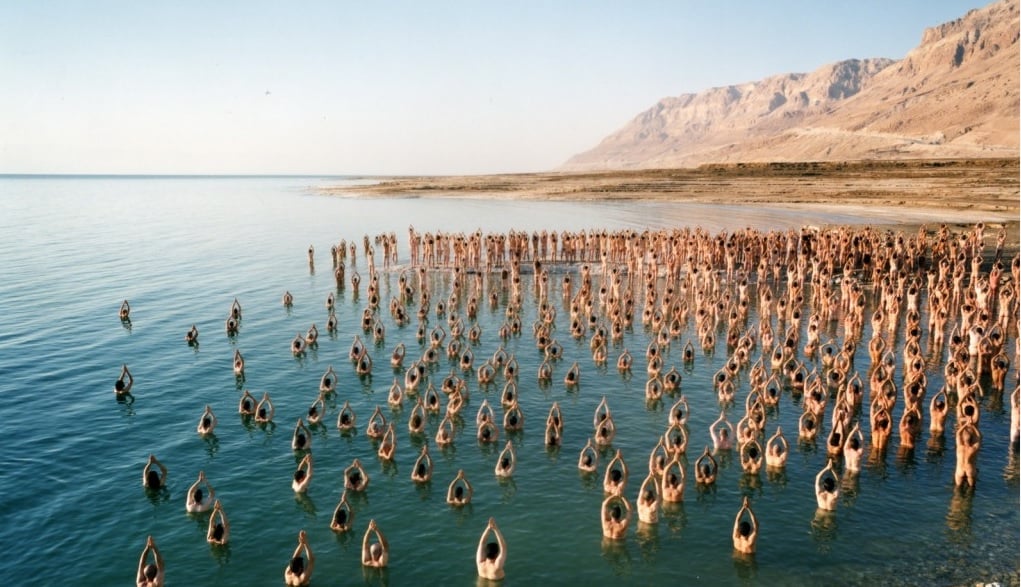
Spencer Tunick, Dead Sea 8 (2011). Courtesy 4 Florentin.
“There has to be a way artists can have a voice to show their works. There has to be some formula,” Tunick told Esquire magazine of the inspiration for his new project. “For starters, equalize the male and female nipple and not deem the female nipple as violent.” Although Instagram, which is owned by Facebook, began to allow paintings and sculpture that feature nudity after a series of public lawsuits, photographs do not get the same artistic allowance.
According to Esquire, Tunick managed to work around the restrictions at Facebook for a time thanks to friend he had working at the company who was able to sign off on certain variations of his images. But when that contact left, he found himself facing the same punitive measures meant to flag pornography or other graphic content. Like many contemporary artists, Tunick relies on social media to show off his work. But it’s also an essential tool to help him make his work in the first place: It’s where he posts casting calls for volunteers.
Though details for the June 2 project are still under wraps and the New York City location remains top secret, Tunick says there will be upwards of 100 people taking part. And, he adds, it “will be meant to be shared on social media without the threat of it being taken down.”
